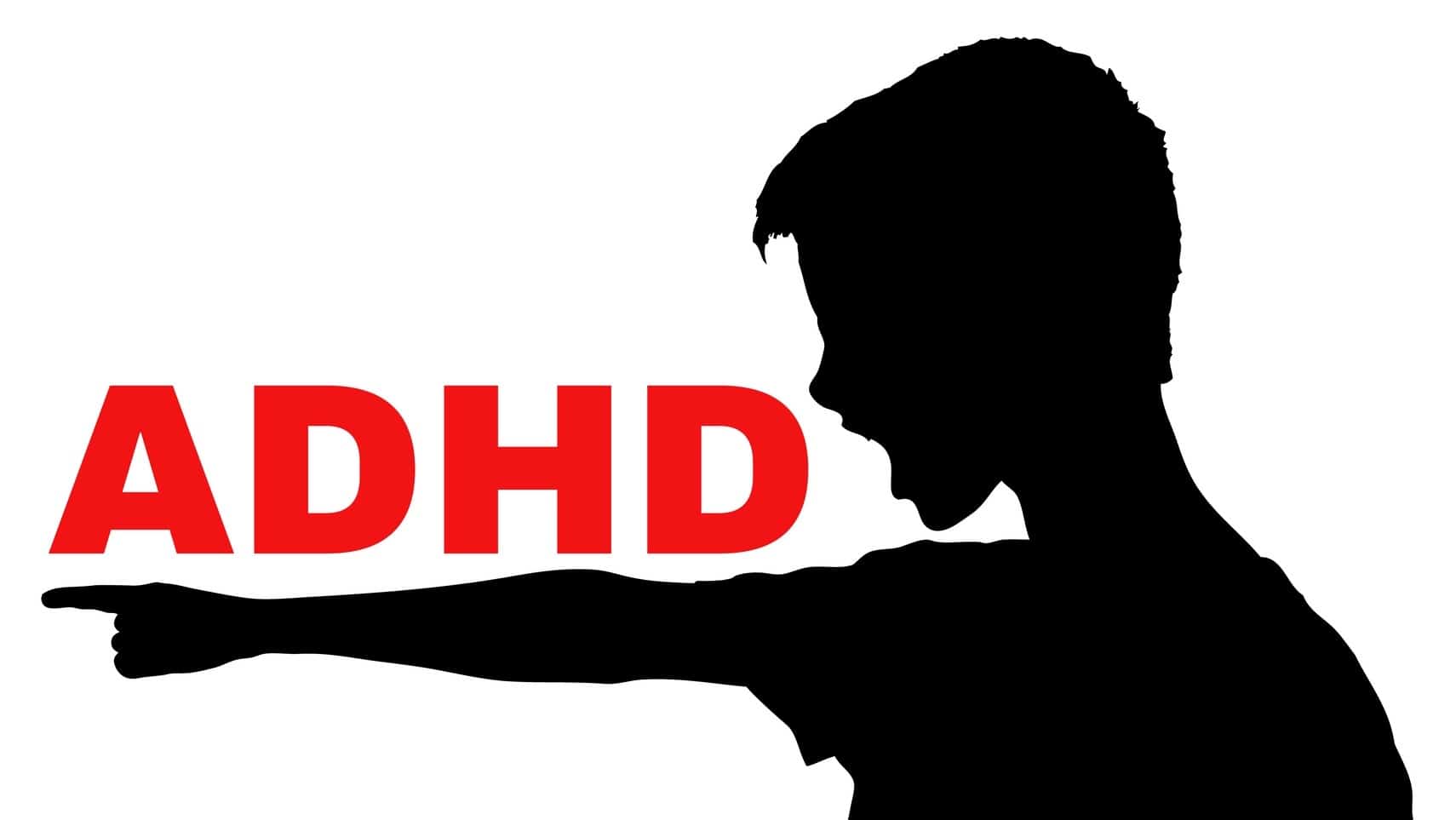When school is in session, kids seemingly spend more waking time there than at home. With that being the case, discussing your child’s ADHD symptoms with their teacher is essential. It helps everyone involved, including your child, the teacher, and yourself, in helping to calm a child with hyperactivity.
Teachers get to know quite a bit about your child, but they can only understand so much unless you talk to them. It takes time for a teacher to adjust to each student, just like it takes your child time to get into the school routine. Many parents must also become comfortable with changes as each new year brings new challenges and expectations.
With everyone involved adjusting to and learning about one another, it’s essential to discuss your child’s ADHD and ask questions when necessary. Your child’s teacher wants to help them develop, so don’t hesitate to reach out.
It does not matter whether your child attends a new school or you want to improve communication with their current educational setting. Either way, asking these questions can help you get all the necessary information and gives the teacher a chance to ask for other details.
The Importance of Open Communication When You Are the Parent of a Child With ADHD
Without communication, you might dread parent-teacher conferences. It can leave you wondering if your child is paying attention and keeping up academically. These issues can cause anxiety, and knowing what to ask and areas to discuss will give you a sense of control.
Open communication allows you and the teacher to share information as it comes up. It can also help you have productive conferences that help your student have a beneficial experience. Extra information can help your child succeed in school, giving you relief and allowing the teacher to make adjustments as necessary.
What is ADHD?
ADHD, or attention deficit hyperactivity disorder, indicates a pattern of inattention, hyperactivity, or impulsivity. When the situation interferes with functioning or development, they may receive this diagnosis from a professional.
While researchers aren’t entirely sure what causes attention deficit hyperactivity disorder, they believe genes and environmental factors play a role. There’s also the possibility that brain injuries and nutritional intake contribute to the symptoms.
Symptoms and Signs of ADHD
Experts indicate that the core symptoms of ADHD include:
- hyperactivity
- inattention
- impulsivity
The signs of ADHD include the behaviors caused by the symptoms. You might notice the following:
- difficulty staying on task
- struggling to focus
- inability to stay organized
- constantly moving, even when it’s inappropriate or against the rules
- excessively fidgeting, tapping, or drumming on objects
- talking too much
- restlessness
- acting without thinking
- lack of self-control
- desiring immediate rewards and being unable to delay gratification
- interrupting others
- making decisions without thinking of the future or potential consequences
- overlooking details and making careless mistakes
- seemingly not listening when spoken to directly
- not following through on instructions or finishing tasks
- avoiding things that require mental effort
- losing necessary items
- being easily distracted
- forgetting chores, errands, phone calls, or appointments
- struggling to stay quiet when necessary
- inability to wait for their turn
Children exhibit symptoms differently, which is another reason communication is so essential. When teachers know how your child displays hyperactive behavior, they can help sooner than when they figure it out alone.
What Helps a Child Calm Their Hyperactivity?
Children experiencing ADHD thrive in environments that are structured but flexible. They also do better when they develop positive relationships and role models. However, asking teachers questions and opening up offers enormous benefits to your child.
Questions Parents of Kids with ADHD Should Ask Teachers
Here are questions parents should ask of the educators in their public school system.
1 – What methods do you use when teaching children with ADHD?
Every child is different, and their symptoms will appear in different ways. Your child’s teacher might have familiarity with differing behaviors, so asking which methods they implement is beneficial. You’ll either realize that they already use methods that work with your child, or you’ll have a chance to explain your child’s differences.
You’ll also want to identify how the teacher handles hyperactive behavior. It can help you understand how they will approach your child if a situation arises.
2 – Does my child seem happy at school?
An essential aspect to discuss is your child’s well-being. Your child can thrive when they’re happy, and finding a way to make that happen can make a difference. It can boost their self-esteem and make them want to learn.
3 – Does the school have a procedure for interventions and supporting issues of difference?
A child experiencing ADHD will have different issues than other children. Ask about how the school handles these situations to help you grasp what you’re working with. It can also give you peace of mind if you hear procedures you support.
You can discuss specific issues and hear their feedback and plans. Another beneficial aspect of learning the procedures is asking about an IEP plan. Not all children experiencing ADHD needs an IEP, but it can be a helpful resource.
An IEP is an Individualized Education Program. Asking about it can help you understand how staff will help your child. It is for individual students who require extra support and flexibility. Parents work with teachers, administrators, and other educational support members to create an IEP.
4 – How can you encourage their interests and talents?
Keeping your child engaged and focused at school involves implementing their interests and strengths. Talk to your teacher about the things your child enjoys, and ask how they will use them to help your child. It will get your child talking about the task and improve their sense of self-worth.
5 – What can we expect from your class?
When you ask this question, discuss class size and seating arrangements. These aspects can make all the difference in your child’s success.
6 – Are there alternative options for unstructured time?
Many children experiencing ADHD need structure and routine in their day. Having other options available can help them stay on track without losing focus for the remainder of the day. It can also prevent hyperactive behavior during unstructured time.
7 – How can I help encourage active class participation?
Asking the teacher how you can help encourage your child to participate can make a difference. They might suggest things you can do at home to foster your child’s interest. There also might be things you can do in the morning before school to help your child focus and participate.
8 – What is the policy regarding ADHD medication?
It’s essential to ask this question if your child takes medication during school hours. You’ll feel better knowing if they’re prepared to give it to your child. Additionally, you can ask if they will monitor for side effects after your child takes medication.
9 – What are the homework arrangements?
Children with hyperactivity often take longer to do homework than other kids. They might struggle with time management, focus, and other essential aspects. Asking about the homework arrangements and discussing your child’s struggles can help everyone involved.
10 – Do you have suggestions for how I can help them stay caught up on their work?
Your child might not always finish school work, causing them to get behind. Asking your child’s teacher what you can do to help can make a difference in academic development. It also shows that you’re willing to do what you can to ensure the school year goes smoothly.
11 – How do you handle bullying?
Children experiencing attention deficit hyperactivity disorder often struggle with socialization. They don’t always recognize social cues, leading to irritating their peers. Asking what the teacher will do if it happens can help you feel better knowing your child is protected.
12 – Does all staff know about ADHD?
Your child’s teacher isn’t the only person who will be responsible for your child at school. Gym, art, STEM, music, and other teachers or employees will help your child develop. Asking the teacher if they all understand ADHD will help determine which employees you should talk to regarding your child.
13 – How often should we discuss my child’s progress?
Your child’s teacher might want to update you daily or opt for weekly updates. It could be best to check in weekly but ask for notice if your child has a bad day or disrupting experience.
Dealing with issues as they occur can help encourage your child’s success. However, you don’t want to disrupt the teacher too often. Find a timeframe that works well for both of you but allows you to feel comfortable.
14 – What is your preferred communication method?
Determining the quickest way to get ahold of your child’s teacher opens lines of communication. You’ll feel better knowing the teacher will see your message and respond when they get a chance.
The teacher might prefer phone, text, email, or a specific app. It ensures that you can regularly check the teacher’s preferred contact method for updates on your child. Knowing the preferred method increases the chances that issues don’t worsen before you and the teacher speak.
15 – Are there any behavior changes you see during the day?
Your child and their teacher spend many hours together every day. The teacher will notice behavior changes and learn when they occur. There might be specific triggers, including activities, people, or time of day.
16 – Are the teaching and learning arrangements flexible?
Children experiencing ADHD don’t learn the same way as other students and sometimes require more breaks. Ask about flexibility to know what you and your child are working with. It can help with time management and targeting specific learning difficulties.
17 – Do you recommend any specific resources for managing hyperactivity?
Teachers deal with many children and learn quite a bit along the way. They might be able to recommend specific resources that could help your child. Teachers want to help their students, so don’t hesitate to ask.
18 – Do you have a plan for students who struggle with taking tests?
Lack of focus can interfere with test-taking skills. Ask the teacher about a plan if you know your child struggles in this area. The teacher might be able to provide helpful assistance to children, and it’s beneficial to have an IEP in place for this.
19 – How much physical activity time will my child with ADHD receive?
Children need physical activity, and those experiencing ADHD benefit from frequent activity breaks. They can’t always focus well, so breaking their day up and allowing physical movement can make a difference.
20 – Is there a staff member who could mentor my child?
Sometimes children experiencing ADHD need more assistance than a teacher can offer during learning times. Having a mentor or aide can help your child stay on task and thrive in their environment.
Final Thoughts on Questions Parents of Kids with ADHD Should Ask Teachers
Attention deficit hyperactivity disorder is common and can interfere with your child’s well-being. However, staying in contact with your child’s teacher can make a difference. Don’t be afraid to ask questions because the discussions can help the teacher encourage your child throughout the day.
With routine and consistent role models in your child’s life, they can flourish academically and socially. Their experience might differ from other children’s, but it doesn’t have to be a constant struggle. Your child can thrive, you can feel comfortable, and your child’s teacher can be a guide when you can’t be there.

















 Community
Community

